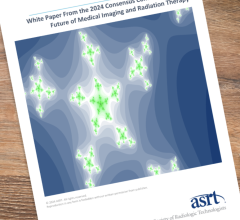August 1, 2014 — The U.S. Department of Health and Human Services (HHS) issued a rule today finalizing Oct. 1, 2015, as the new compliance date for healthcare providers, health plans, and healthcare clearinghouses to transition to ICD-10, the tenth revision of the International Classification of Diseases. This deadline allows providers, insurance companies and others in the healthcare industry time to ramp up their operations to ensure their systems and business processes are ready to go on Oct. 1, 2015.
The ICD-10 codes on a claim are used to classify diagnoses and procedures on claims submitted to Medicare and private insurance payers. By enabling more detailed patient history coding, ICD-10 can help to better coordinate a patient’s care across providers and over time. ICD-10 improves quality measurement and reporting, facilitates the detection and prevention of fraud, waste and abuse, and leads to greater accuracy of reimbursement for medical services. The code set’s granularity will improve data capture and analytics of public health surveillance and reporting, national quality reporting, research and data analysis, and provide detailed data to enhance healthcare delivery. Healthcare providers and specialty groups in the United States provided extensive input into the development of ICD-10, which includes more detailed codes for the conditions they treat and reflects advances in medicine and medical technology.
“ICD-10 codes will provide better support for patient care, and improve disease management, quality measurement and analytics,” said Marilyn Tavenner, administrator of the Centers for Medicare & Medicaid Services (CMS). “For patients under the care of multiple providers, ICD-10 can help promote care coordination.”
Using ICD-10, doctors can capture much more information, meaning they can better understand important details about the patient’s health than with ICD-9-CM. Moreover, the level of detail that is provided for by ICD-10 means researchers and public health officials can better track diseases and health outcomes. ICD-10 reflects improved diagnosis of chronic illness and identifies underlying causes, complications of disease and conditions that contribute to the complexity of a disease. Additionally, ICD-10 captures the severity and stage of diseases such as chronic kidney disease, diabetes and asthma.
The previous revision, ICD-9-CM, contains outdated, obsolete terms that are inconsistent with current medical practice, new technology and preventive services.
Much of the industry has already invested resources toward the implementation of ICD-10. CMS has implemented a comprehensive testing approach, including end-to-end testing in 2015, to help ensure providers are ready. While many providers, including physicians, hospitals, and health plans, have completed the necessary system changes to transition to ICD-10, the time offered by Congress and this rule ensure all providers are ready.
For additional information: www.cms.gov/ICD10


 July 30, 2024
July 30, 2024 








